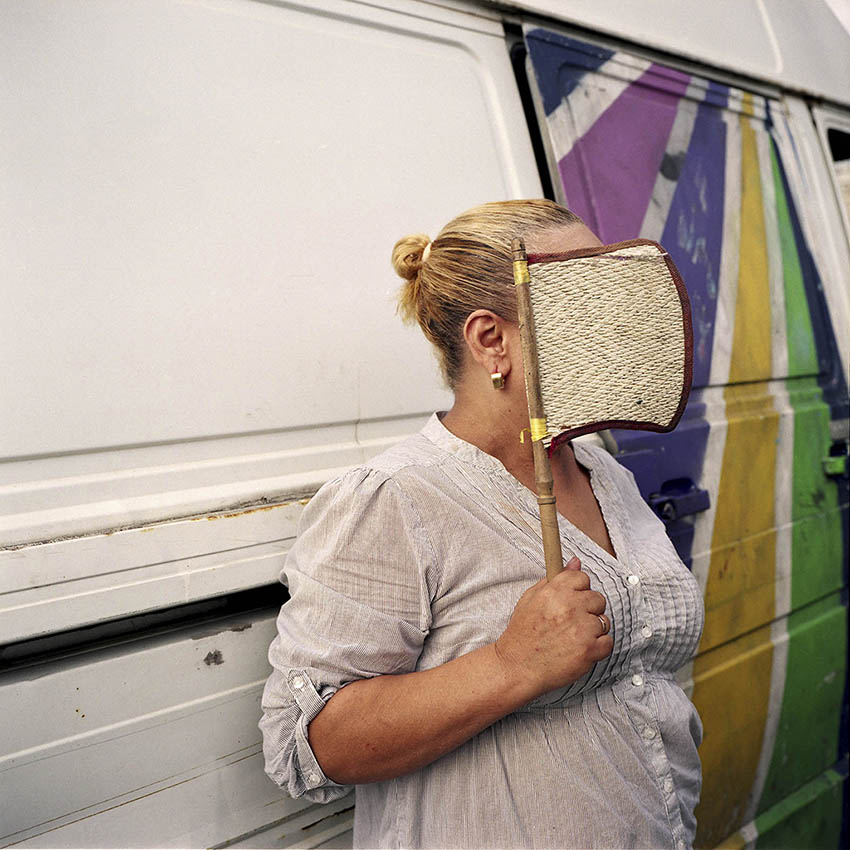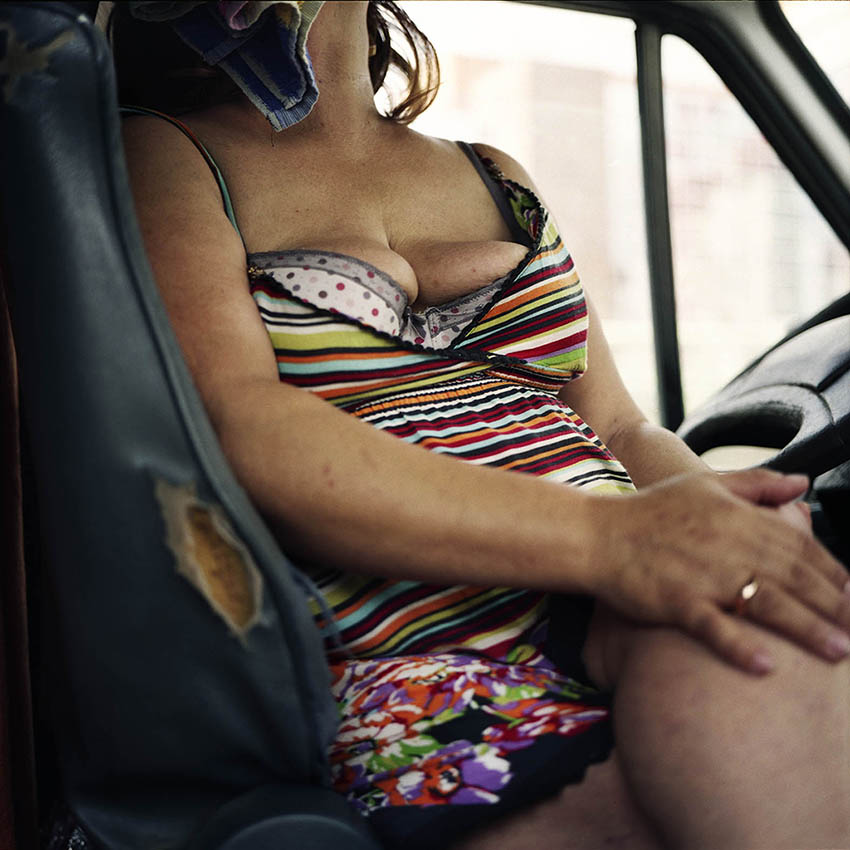Murder in Paris Park Highlights Shortcomings of Recent Prostitution Law
Sex worker Solange in front of her van, from Solange, by Sabrina Mariez. © Sabrina Mariez
By Matt Fink
Back in the dog days of mid-August, 36-year-old Vanessa Campos was murdered in Paris’ Bois de Boulogne park. Her death came a year-and-a-half after the French parliament government passed a law designed to both stem prostitution and protect its practitioners - among whose ranks Campos counted herself. A transgender woman from Peru, she was shot by thieves taking advantage of her and her john’s vulnerability in an isolated corner of the park, widely known as one of Paris’ major bazaars of prostitution.
Many in France’s sex worker community blame the Francois Hollande-era legislation for her death, which comes amidst an increase of violence against prostitutes. The law seemed promising on paper, shifting, as it did, punishment from sex worker to john in the form of large fines. But from the prostitutes’ point of view it resulted in their lives being made even more impossible, just another in a long line of finger-wagging pieces of legislation aimed at the sex-for-pay industry - a perpetual, sisyphean game of punitive wack-a-mole.
Interior of van, from Solange, by Sabrina Mariez. © Sabrina Mariez
Laws regulating or combating prostitution go back a long way, paralleling the evolution of the profession itself. In ancient Rome, ever a touchstone for all things permissive and blithely debaucherous, an afternoon fuck with a paid (or owned) stranger was as easily come by as an olive; the industry was regulated by the state, with specific districts of the city allocated for its practice.
Of course, the chaste and lonely new god of Christianity, forced on a Roman populace - one steeped in the squabbling, fornicating lives of the crowded Roman pantheon - by Emperor Constantine in the early 4th Century, demanded prostitution be branded a soul-endangering, sinister menace. The quotidian exigencies of sex - basic as bread - were thus stiff-armed to the guilt-ridden margins of human consciousness, remaining in that mildewed, semen-flecked space ever since, denied and maligned along with those who facilitated their fulfillment.
It was in the literal margins of a city park that Vanessa Campos ceased to be a human being and became just another homicide statistic. According to Parisian sex workers, the 2016 ruling - enacted, ostensibly, to protect them from the steel fist of the law - is at least partly to blame for her death. Facing fines as high as 1,500 euros (1,750 dollars), johns, say sex workers, have increasingly insisted on doing business in places even more farther removed than normal from the prying eyes of police - and the protection they provide (ideally) from violence. Released from the punitive grasp of the state, prostitutes have instead been pushed into the arms of thieves, sadists and human traffickers by their own clients.
But although sex workers throughout France have made plain their opposition to the sex law - vis-a-vis both protests and a recent survey of 583 workers by NGO Medecins du Monde - many who are more comfortably positioned socially have either denied the law’s culpability or refused to acknowledge the matter altogether. An example of the former is Claire Quidet, a mouthpiece for anti-prostitution group Mouvement du Nid. Quidet was quoted in a recent New York Times article as saying that “prostitution is a dangerous and violent activity, and the law on prostitution in France provides tools to protect. In no way is it the direct cause of more violence.”
The quotidian realities of prostitution, ably captured by Sabrina Mariez in Solange. © Sabrina Mariez
Meanwhile, the head of the government’s center for gender equality, Marlene Schiappa, handily represents the state response to Campos’ death and the reported increase in violence against prostitution in general. Following the homicide, she put in motion an investigation into ways to mitigate said aggression, while failing to address the law and its possible culpability.
The bleak truth of the matter is, upper class indifference to the suffering of those invisible, untouchable persons perched on the social ladder’s rusty bottom rung is older than oxygen and as durable as the tardigrade. And such is the immense chasm dividing the lives of those who make the laws from those who reside in society’s sub-basement that legislation drafted to right social wrongs often fails to acknowledge the nuanced, complicated reality of life there. The Hollande administration’s 2016 prostitution law would seem to fall into this legislative category, wherein are filed laws like dirty bandages, wound around open wounds by unwashed hands.
Best be wary, then, of good intentions, especially when delivered from such heights that the remote, dark valley below is only poorly limned by the barest of illumination. Poor discernment makes for faulty decision-making: the residents of that plush summit castle of privilege, thinking a conflagration has broken out down in the plebeian village, arranges for thousands of cubic meters of water to be pumped there. Only later do they learn of their mistake; that which had afflicted the settlement wasn’t a fire, but a flood.
Solange, front seat of van. From Sabrina Mariez’s Solange. © Sabrina Mariez
But a glimmer of positivity brightens Vanessa Campos’ bleak demise. Unlike in so many cases involving violence against prostitutes, justice in her case may yet be served; two weeks after the crime was committed, five men were apprehended and charged with her murder. It’s unclear, however, to what extent the cases of over 10 sex workers killed in Bois de Boulogne have been similarly addressed.
The photos in this article were taken from Solange, a series by French photographer Sabrina Mariez. It can be viewed in its entirety - as can several other of Mariez’s fascinating projects - at sabrinamariez.fr.











